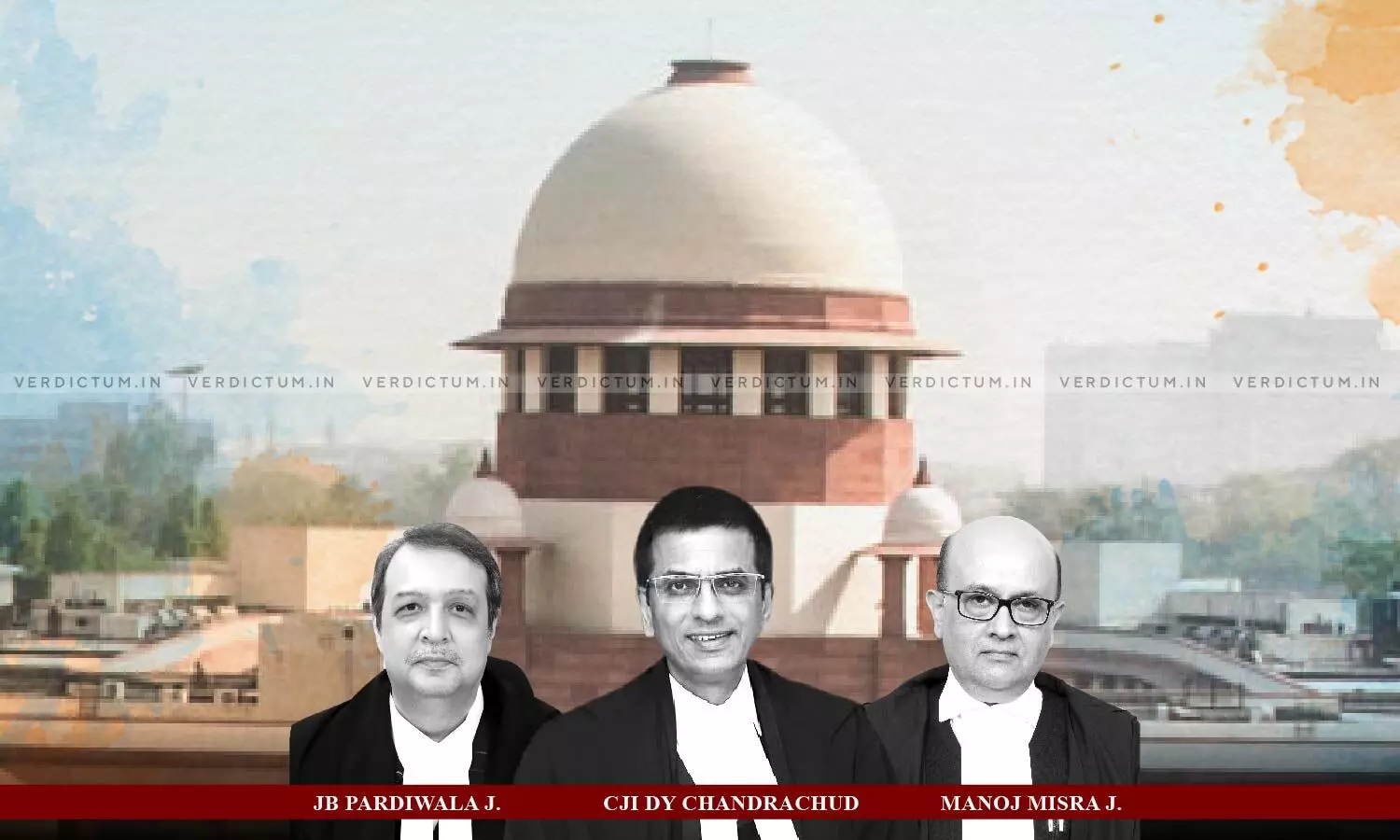
How Can We Ban Something Which Is Already Illegal: SC While Rejecting PIL Seeking Ban On Adulterated Ayurvedic Medicines
 |
|The Supreme Court today declined to entertain a Public Interest Litigation (PIL) that sought a ban on adulterated ayurvedic medicines. The PIL also sought action against manufacturers accused of adulterating Ayurvedic medicines with substances such as steroids, lead, and mercury.
The Bench of Chief Justice D.Y. Chandrachud, Justice J.B. Pardiwala, and Justice Manoj Misra, declined to entertain the matter at the outset and orally observed as to how a Court can direct the ban of something that is already considered unlawful. Appearing for the Petitioner, Senior Advocate Salman Khurshid along with Advocate-on-Record Farheen Fatima submitted, "This is about the indiscriminate use of steroids in Ayurvedic formulations."
However, the CJI remarked, "But how can we grant these kinds of relief? (i) Issue writ in the nature of mandamus or any other appropriate writ, order or direction against the respondents to mandate the article 19 (1) (g) and article 21 of the Constitution of India (ii) direction declaring a ban on adulterated ayurvedic medicine. (iii) direction or guidelines to identify companies involved in manufacturing and selling adulterated ayurvedic medicines and blacklist them"
The CJI further stated, "Who says that adulterated medicines are permissible? We can't issue a writ to ban them. They are obviously not permitted. These are all purchases made by the Governments, every State Government will take action according to law."
Asking the Petitioner to pursue the other remedies, the CJI observed, "You can pursue your claim, if you have a particular grievance against any manufacturer. You have your remedies, if you feel something has to be done then move the government." Accordingly, Senior Advocate Khurshid sought the permission of the Court to approach the appropriate authority.
The bench dismissed the petition, stating that the petitioner can pursue remedies before the competent regulatory authority.
The Petitioner Vishnu Kumar in his Petition submitted that he got some of the Ayurvedic medicines tested in a government lab and they tested positive for steroids and other harmful chemicals having negative and irreversible effects on the human body. The Petitioner stated that despite his several attempts to bring this ongoing corruption to the notice of concerned authorities, these medicines are still sold across the country.
"These medicines are still sold across the country and even in some of the South-Asian Countries under the label of 100 per cent Ayurvedic and no action is taken by the Respondents. It is also contended that the officials, the Drug TI Controller, and the Health ministry have collectively concealed the matter at hand from flourishing or any action being taken against such companies", reads the PIL.
The Petitioner also stated that if no action is taken against such companies and public officers in the garb of consuming ayurvedic, medicines the citizens of our country are damaging their kidneys and liver leaving fatal effects on the body elaborated further.
It has also been highlighted in the Petition that because of adulterated Ayurvedic medicines are responsible for nearly 1.5 per cent of annual global deaths i.e. 900,000 deaths as many Ayurvedic Medicines contain heavy metals (particularly lead, arsenic and mercury) above the recommended limit and when exposed to lead high levels, the brain and central nervous system are attacked resulting in coma, convulsions, and even death.
The Petitioner also relied on the case of Francis Coralie Mullin v. the Administrator, Union Territory of Delhi AIR 1981 746 and stated that the Right to life has a very broad scope which includes the right to livelihood, better standard of life, hygienic conditions in the workplace & right to leisure. "Right to Health is, therefore, an inherent and inescapable part of a dignified life. Article 21 should also be read in tandem with the directive principles of state policy, cited above, to truly understand the nature of the obligations of the state in this respect", stated the PIL.
Cause Title: Vishnu Kumar v. Union Of India & Ors. [Diary No.- 46425 - 2023]